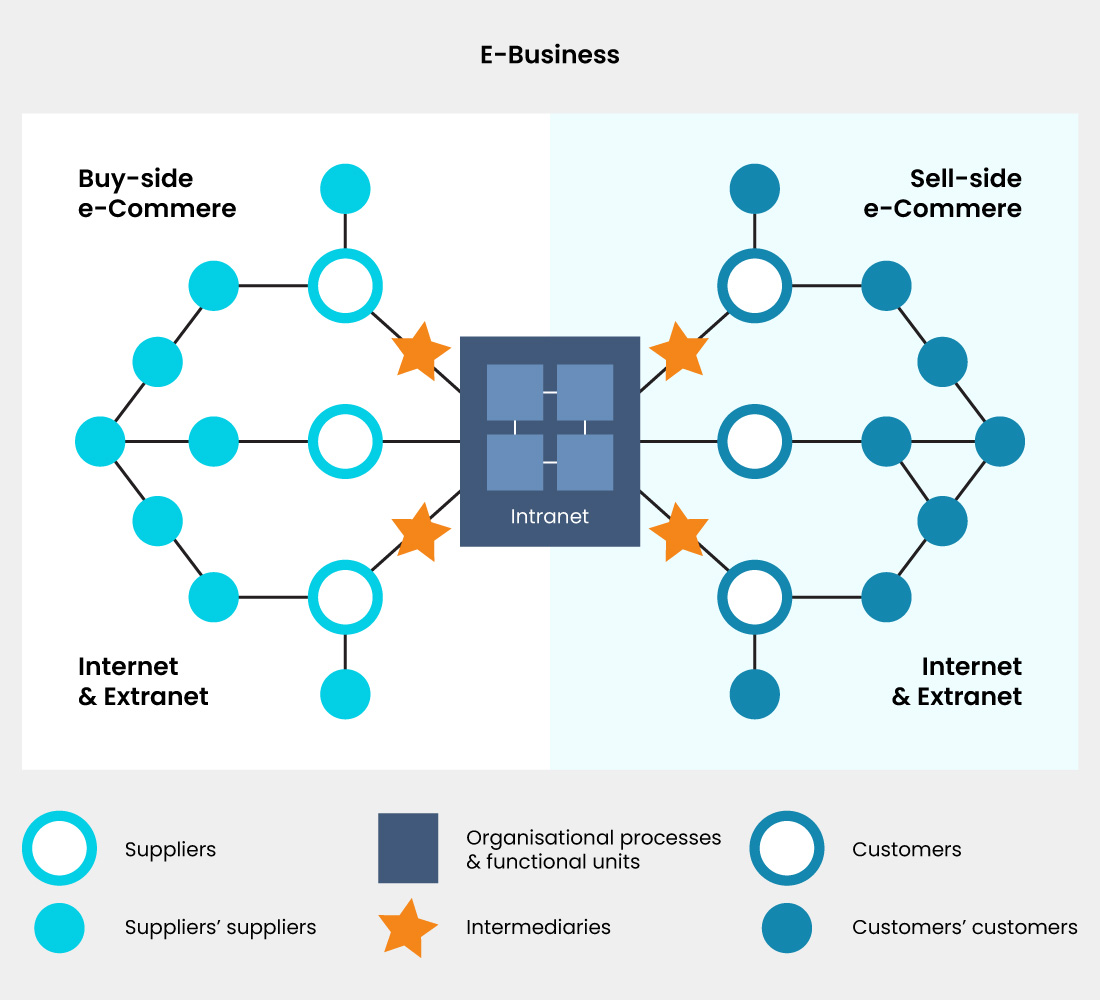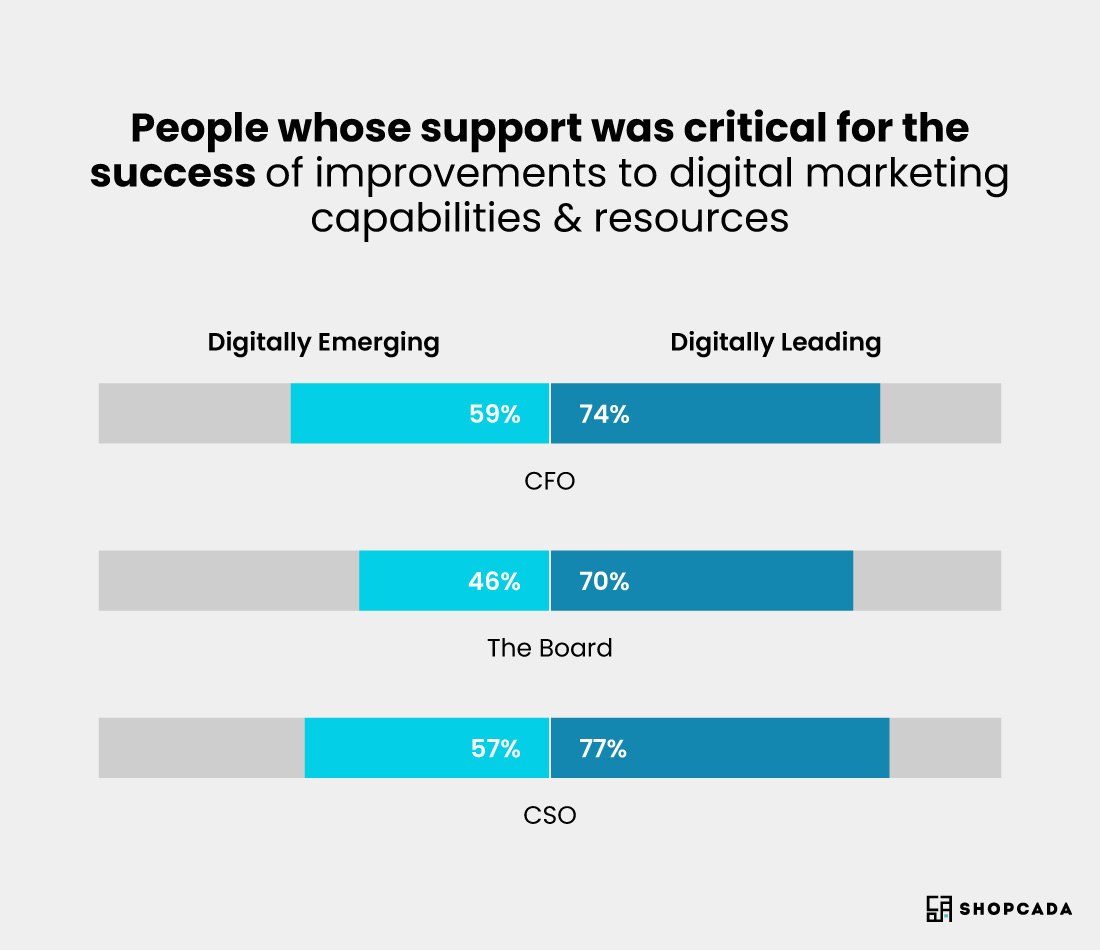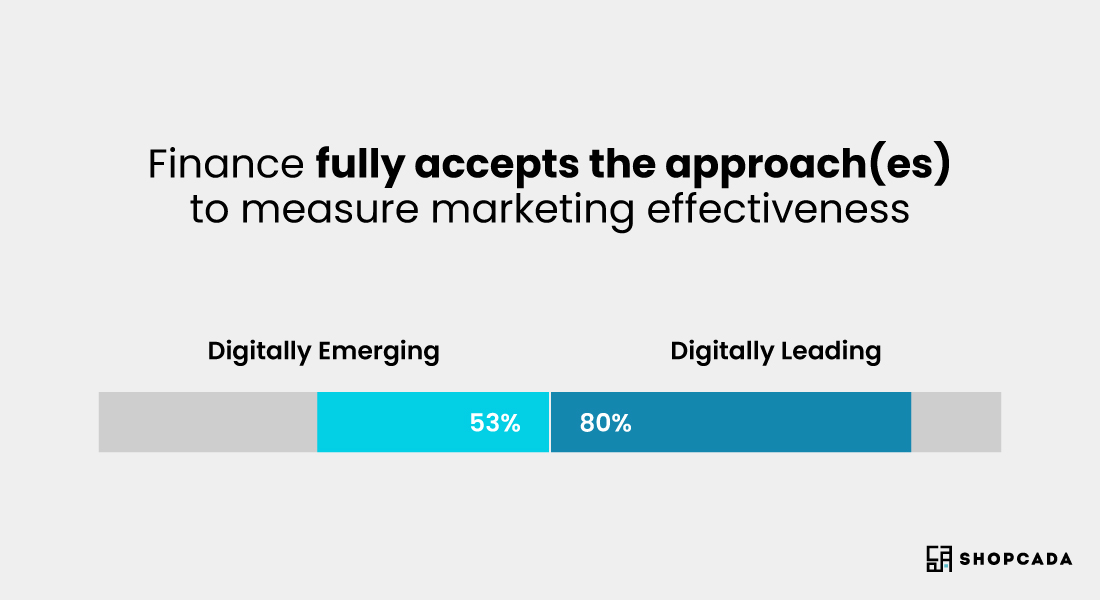Digital Transformation: What Is It, Why You Need It & How To Go About It
In recent years, we've all heard the term "digital transformation" - it's difficult to ignore. Companies must adapt or risk going out of business in a world that is increasingly more reliant on technology and cloud-based applications.
The change in organisational thinking away from traditional marketing channels and toward digital media is referred to as digital marketing transformation.
It also refers to reducing the bias toward old or conventional marketing channels and putting digital at the centre of your thoughts and all of your marketing methods.
Because technological advancements are rapid, resulting in increased mobile digital consumption and shifting client expectations, your marketing methods must evolve to keep up.
A digital marketing transformation project entails changing your marketing culture and practices to be 'digital first,' rather than treating digital marketing as an afterthought.

What It Means
Experts believe that we are in the midst of a marketing revolution, with rapid shifts transitioning from traditional to digital marketing.
Is true, many old marketing methods have become outmoded or are being stressed less by brands of all types.
Traditional marketing methods are quickly becoming obsolete or secondary in many brand contexts (both commercial and consumer).
Traditional marketing strategies in decline include direct mail and print advertising.
Importantly, new digital marketing methods can be measured, tested, and reported to management using analytics.
Sales conversions may now be identified and the return on marketing investment (or ROMI). Whereas traditional marketing was frequently unable to quantify or disclose sales conversions.
The transition and evolution from a traditional marketing mix to primarily digital marketing, including the use of a digital marketing mix (next subject) and new marketing technologies to plan, implement, test, measure, optimise, and report results on marketing initiatives, campaigns, and programmes, is defined as digital marketing transformation.
Traditional marketing methods will be required depending on the brand circumstance (e.g., B2B vs. B2C), but will be firmly connected with digital marketing. Traditional events, for example, will be marketed through all forms of digital marketing, including social media.
At this point, if you are still confused about what “Digital Transformation” actually means, don’t worry. It could be because there is no universal definition. The phrase has diverse connotations based on the industry or department to which it refers.
A digital transformation for HR professionals includes automating operations, digitising employee records, and leveraging technology to track productivity.
A digital transformation in accounting denotes the transition from paper-based contracts and invoices to electronic contracts, data collecting, and reporting.
However, a digital transformation in marketing is in a class of its own. Hopefully, the following illustration can help you visualise what it is.

Why Do You Need It?
According to our extensive research, many organisations today recognise the need for digital transformation; to compete in digital marketing data and technology, a systematic digital transformation process is required.
The need for transformation is especially acute in larger, international companies and organisations that must manage the change that comes with implementing new processes, skills, structures, and technology.
Although it has been almost 25 years since the first pioneers began to use the Internet for marketing.
We were assured that new strategies like web and email marketing would provide inexpensive, rapid, and simple ways to reach new customers. We now know that this is not the case and that proactive digital marketing management is required.

Digital Transformation & Marketing
In marketing, digital transformation means that we, as marketers, are using digital channels such as email and social media, as well as web applications and other communication platforms in a unique, innovative, and creative manner.
Marketers are now tasked with researching and selecting the right platforms to enable them to have a multichannel presence. Marketers can build two-way communication with their customers if they have this.
This assists them in understanding their wants and exceeding their expectations by creating a seamless purchasing experience.
This also enables marketers to make a safe and well-considered decision about what they need to do and whatever tools they need to grasp to begin performing it all for every activity they plan.
All while keeping your target user in mind. And how well your experience will be tailored to them. Using all current marketing technologies available to you.
When combined with a data organisation that will assist your firm in gathering a large amount of crucial information, the digitalisation of marketing becomes a much more valuable and effective instrument.
Your user is now putting the consumer first! All of your firms embrace a model that will assist them in reading all of the information and responding to the needs of your users.
Effective Framework?
Marketing digital transformation is about exploiting the digital enterprise. It entails continuously evolving all parts of the company model, including what it offers, how it interacts with clients, and how it runs, through the use of technology.
Simply said, digital transformation is a method of future-proofing an organisation.
Companies that identify their aims and act accordingly are more likely to succeed. Marketing in the digital age is more than just a fresh idea, a new leader, or a huge campaign. It entails taking a series of careful and reinforcing activities that lead to the formation of powerful digital judgments.
Strategy First
Companies should first build their digital vision, which should be anchored in business and consumer strategy, to generate a clear direction. This direction can influence all future digital transformation decisions.
Optimisation
To be successful, digital transformation in marketing must be supported by an organisational and governance framework that eliminates traditional corporate silos. This organisation should include defined resources and channels for making digital investments, as well as a supportive culture to assist propel the digital enterprise forward through quick decisions.
Capabilities
You should have a realistic grasp of your marketing skills in the digital age. Only then can organisations strengthen such capacities to support their actions. This includes safeguarding intangibles such as data, talent, the cloud, processes, and key systems.

Embrace Possibilities
Embracing digital transformation in marketing entails expanding beyond preconceived notions of what your organisation is and how it is perceived. It can help you tap into and build new profit pools while shifting away from low-value activities. Marketing in the digital age can open up new opportunities, and with the knowledge gained from previous phases, researching these paths sharpens digital objectives.
Superpowers!
Seizing your superpower entails making decisions about what not to do and being unapologetic about pursuing the activities you choose to pursue. Marketing leaders may separate themselves from their colleagues and demonstrate a clear path to value by carefully picking activities that are strongly tied to strategy and future value.
Obstacles?
Marketing is one of the most important growth catalysts in the digital age, with an ever-expanding range of channels and touchpoints to explore. Digital marketing transformation is no longer an optional extra for businesses; it is now a need for survival.
Despite this, there are numerous impediments to digital marketing transformation. These challenges, or 'pushbacks,' stifle organisational growth and expose organisations to the risk of drowning in the digital dust.
But what are the impediments to digital marketing transformation? Let us investigate.
Resistance
Digital marketing transformation is more than merely experimenting with new promotional channels and technologies. A cultural shift is required for successful transformation.
If your senior decision-makers believe that "if it ain't busted, don't repair it," digital marketing transformation will be impossible. As a result, one of the most significant hurdles to success is an aversion to change.
Things will never improve without senior leadership support. The digital world is always changing, and what works today might not work tomorrow. Consider the likes of Toys R Us and Blockbusters.

These once-innovative brands failed to modernise their operating methods, resulting in missed chances in digital marketing. New digital competitors (in Blockbuster's instance, the unstoppable Netflix) eventually monopolised the market with more modern and adaptable solutions, and these once-mighty firms went bankrupt.
Data Issues
Digital marketing transformation efforts fail at the first hurdle if no one has access to actual data that everyone can comprehend and utilise to their benefit (even if you do have senior buy-in).
The transformation of digital marketing necessitates knowledge, intelligence, and strategic thinking.
To be fully successful, you must have:
-
A clear indication and comprehension of your goals
-
Insights into what your customers want and require
-
Budget and plan estimates that are accurate
-
Roadmaps and outlines of the channels you intend to investigate, as well as the tools or technology required to change them
Without access to high-quality data, digital marketing transformation becomes a difficult task. Accessing essential information in one central area is critical to ensuring everyone is on the same page. You cannot proceed if your data is weak or fragmented.
Side note, many businesses have been understandably anxious about their GDPR or PDPA requirements in recent years. Even if your business operates in markets where these regulations do not apply, you must be aware of your responsibility to secure client data. Mining consumer data provides a huge opportunity for marketers to create highly targeted digital marketing efforts, but marketers must still follow the best data protection procedures.
We won’t go into extensive details here about what those specific regulations and obligations/checklists are for companies regarding consumer data, but just bear in mind that while it may be a bit of a drag to have to comply with these strict regulations, they do give consumers peace of mind and allows them to trust your company with their data…which you should never use for anything other than to enable your company to provide better service and value to your consumers.
Budget

Budgets are another major impediment to the digital marketing revolution (or budgetary planning). Changing your entire marketing department is a huge undertaking, and with so many factors to consider, accomplishing your digital goals comes at a price.
According to a TechRepublic survey, funding restrictions are the top impediment to digital transformation for 51% of firms.
Many organisations forget to account for the costs of employee training and IT legacy system integrations or upgrades when budgeting for digital marketing transformation.
In addition to investing in new platforms and technologies, keep in mind that unanticipated obstacles can arise when merging the old and the new.
You may plan your budgets for a seamless departmental (and organisational) transition by going over your complete digital marketing transformation strategy with a fine-tooth comb and considering every eventuality.
When investing in such a risky project, you must also consider your potential marketing return on investment (ROI). If you successfully implement your digital transformation strategy, you will profit from your efforts and investments. That is something to keep in mind while creating budgets.
Skills & Knowledge
One of the most significant impediments to digital marketing transformation is a lack of skills or knowledge.
The digital skills gap costs the UK economy alone £63 million every year—a staggering figure. It makes no difference how well-thought-out your plan is or how many technological solutions you spend on if you cannot turn theory into action.
It is vital to have internal talent that can not only use your new platforms or solutions but also communicate with your audience across an ever-expanding range of digital channels (and deliver results). Your marketing efforts will fall flat if your firm lacks a wealth of relevant digital capabilities.
Many modern organisations attempting to alter their digital marketing strategy do not invest in employee training and development, and as a result, they suffer.
Providing relevant training, certifications, and marketing courses to your internal employees will essentially bring your digital transformation efforts to life. Your internal talent can consistently upskill themselves and meet the demands of a constantly altering digital landscape if they have access to flexible lifelong learning possibilities.
As a result, you will see a solid return on investment (ROI) from your digital marketing transformation efforts while also ensuring that your brand remains strong and adaptive at all times.
What Are Digitally Leading Companies Doing?
Our analysis found some essential organisational factors that have had the greatest impact on the success of digital marketing leaders. They are as follows:

Commitment To Prioritising & Protecting Digital Transformation
We know that individual efforts in digitally leading firms are driven by a C-suite member, but these organisations are also distinguished by their ability to engage a broader range of leadership support.
77% of respondents from digitally leading organisations said the chief strategy officer's support was crucial, 74% said the CFO's support was critical, and 70% said the Board's support was critical to the success of a transformation programme. These figures drop to roughly half in digitally emerging enterprises.
According to the comments, leadership alignment, rather than individual achievement, is an unparalleled advantage in any large-scale effort.

This also emphasises the significance of uniting the C-suite around common corporate objectives to overcome the challenges posed by divergent incentives.
The new leadership style necessary for tomorrow's organisations is considerably more about the leadership A-Team than it is about the type-A leader.
Overcoming personality disputes and looking beyond the individual can enable a collaborative effort to achieve digital transformation. It is not sufficient to appoint a single CXO as the ceremonial head of digital transformation.
All C-suite and board members must collaborate to identify which activities are crucial to meeting company objectives, and then pick a leader who is most aligned with those initiatives to lead the stages toward change.
While functional competencies are vital, it is also important that these leaders opt to lean in. They must enthusiastically embrace the CEO's vision and mobilise their teams behind the company's goals.
Marketing & Finance Harmony
According to our research, addressing today's customer demands necessitates greater coordination among functional leaders, but there are two teams whose alignment is critical.
The CMO and CFO must have a collaborative, not transactional, relationship. Indeed, 71% of respondents who stated that their most senior marketing person establishes clear financial KPIs for the marketing team cited a collaborative relationship with their CFO, while only 61% who had a more transactional relationship with their CFO were able to create distinct business KPIs.
This provides a new and distinct problem, as traditionally the languages of marketing and finance have been at odds.

Marketers must learn to communicate the financial impact of marketing operations on business outcomes to be recognised as a credible growth lever. This includes converting marketing analytics into ROI. This is a distinguishing feature of digitally leading companies.
Only 53% of respondents from digitally leading organisations thought that their approach to evaluating marketing performance was approved by finance, compared to 81% of respondents from companies where digital activities are just getting started.
If finance does not understand the business impact of marketing, marketing will continue to struggle to secure the resources required to go from reporting contradictory marketing outputs to delivering outputs that demonstrate how marketing drives business objectives.
Creating an open channel of communication between the two teams and promoting active learning allows both sides to share their expertise and better understand each other's functions.
Facilitating this relationship will assist the firm in valuing marketing not only as marcomms specialists but also as demand creators that lead directly to improved business outcomes.
Budget Talks & Walks

Organisations frequently desire to adopt agile ways of working but fail to do so due to a lack of adequate resources.
Changing course at the drop of a hat necessitates self-assured leaders who understand when to pivot and have the financial means to experiment.
The typical budget planning season allocates expenditure amounts to initiatives in advance, leaving minimal room for modifications during the fiscal year.
It requires great effort to establish arguments for more money in these stringent contexts, which is exacerbated by the divergent vocabulary of marketing and finance departments.
According to our findings, digitally successful organisations are distinguished by their proactive approach to reallocating cash for projects throughout the year.
Marketers from digitally leading organisations are more likely than those from non-digitally leading companies to claim their budgets are examined (and, if necessary, adjusted) every month or quarter based on what is required to fulfil their objectives.
By including this flexibility in the company strategy, teams can change course based on crucial learnings along the road.
Right Partner Collaborations

Digitally leading organisations are more likely to work with external partners to fill gaps in digital marketing capabilities, whereas digitally developing companies are more inclined to do it themselves.
Although many businesses view the cost of external partners as a financial burden, digitally advanced businesses see it as an investment in their operational efficiencies.
64% of respondents from digitally leading organisations stated they either totally outsource or have equal internal and external duties for managing marketing campaigns, generating digital creative, and calculating campaign ROI.
Only 46% of respondents from digitally developing organisations outsource any digital marketing activity.
Outsourcing more complicated skills allow digitally advanced organisations to focus on achieving goals without the strain of working alone. This reallocation of time and energy might provide respite to team members who are under pressure.
In response to digital marketing initiatives, 89% of respondents from digitally leading organisations were happy that providing digital tools a larger role would free up time to focus on other priorities, while 75% of respondents from digitally emerging companies concurred.
The strong support from both sides reinforces the understanding that the benefits of digital transformation efforts – and sharing the burden of those efforts with other partners – may significantly improve employee experience and efficiencies, as well as business outcomes.
Culture VS Transformation
To broaden Peter Drucker's insightful argument beyond strategy, we discovered that organisational culture is also critical to digital transformation.
Organisations can invest in cutting-edge technology, develop creative initiatives, and hire for extraordinary qualities, yet their corporate culture can still hold them back. New degrees of cross-collaboration and experimentation must be supported by team culture.
One of the most frequently mentioned characteristics in our C-suite interviews was the need to embrace the ability to operate in change. Organisations will grow even in the face of ambiguity if they are willing to adopt new strategies, try new processes, and evolve team structures.
This important culture shift must begin at the top, with leaders who demonstrate an open-minded attitude toward their tasks and responsibilities. 80% of respondents from digitally leading organisations said their marketing leader encourages change, and 70% said their organisation had an open attitude to experimentation. This is compared to only 64% and 47%, respectively, for responders from digitally developing firms.
Additional Factors
Aside from the previously listed criteria, it is critical to keep much more in mind. Yes, digital marketing is evolving to the point that a good organisational framework is required to sustain it. You must also drive your job to receive and translate data into value for your firm.
Content Marketing
Content marketing entails creating content while keeping your users in mind. The language, tone of voice, channels used, and type of content. Everything is important, and you must ensure that it is consistent with and linked to your company's identity.
Automation
It is critical nowadays to have a system in place to predict, follow, and target your users. Marketing automation tools are a very effective technique to direct your consumers down a specific path on your website. It’s that middle ground between what people desire and what you can offer them.

Talent Acquisition & Training
People are your most valuable asset, therefore make sure you have the appropriate people. You must also ensure that they are actively engaged in the development of new tactics. At the same time, you must grasp all of your marketing technology.
Test & Learn
Examine what works and what does not. Allow yourself the time and space to study. In this manner, you will evolve and strategically establish new ways of engaging with and meeting the demands of your customers.
Tools & Documentation
Use digital tools and technologies, and document everything along the route. Nothing can interfere with you and your team having a foundation to work from and documenting what works best for each firm!
Closing Words
With the arrival of new technology, the elements that propel you to digital greatness now may become hindrances tomorrow.
Imagine if the organisations that went through the first digital transformation stopped evolving after that - they had reached the pinnacle of digital excellence in the 1990s and were content. Those businesses would almost certainly be out of business now.
To sustain a world-class digital presence and realise ROI, you must continue to refine and iterate on your marketing engine as a whole.
If you complete the final stage and then stop, you risk slipping behind in an ever-changing digital environment. Staying current on marketing trends and daring to try new things will put your brand at the forefront of digital for years to come.
Beyond investing in technology and tools, successful transformation is dependent on people, collaborative and visionary leaders, accountable and diligent cross-functional relationships at all levels, and cross-functional and external partnerships.
Digital transformation is about continuous improvement against the components that drive an organisation's progress, not about arriving at a destination.
Our findings reveal that even the most technologically advanced enterprises have work to do in many of these crucial areas, leaving more value prospects for growth for organisations of all sizes.
What does it take to win and create digital maturity with a clear hold on ambition? Only 14% of respondents worked for digitally leading enterprises, demonstrating how many organisations are trapped in the middle.
To better meet the needs of today's dynamic marketplace, marketers must adjust their strategy, structure, processes, and capabilities - and establish a culture to support that transformation.

